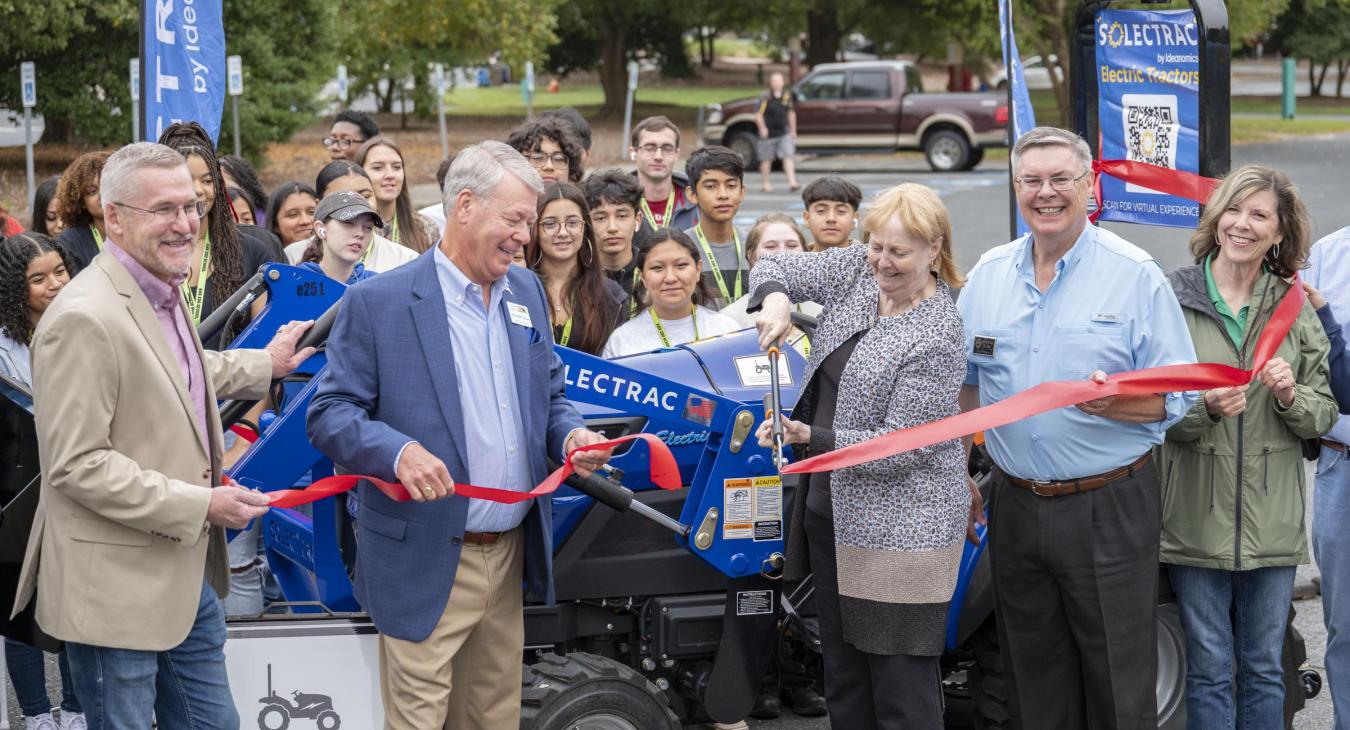The North Carolina Zoo has a new all-electric tractor that will help electric cooperatives gather data about the vehicle’s potential use for the state’s dairy farms, horse farms and greenhouses.
North Carolina’s Electric Cooperatives and Randolph Electric Membership Corp. reached out to the zoo early this year to see if it would be interested in partnering with them on a yearlong pilot project to learn more about how the electric tractor performs. The data to be collected includes how much energy the vehicle consumes, how often it needs to be charged, how well it does the job and how much money it saves on fuel and maintenance costs.
Michael Trent, vice president of member services and public relations at Randolph EMC, came up with the idea to collaborate with the zoo.
“I started out reading meters for the co-op 28 years ago, and I used to read meters at the zoo and knew that they do a lot of horticulture work there,” Trent said. “I thought the zoo would be a great fit.”
Zoo officials agreed, deciding to participate after Asheboro-based Randolph EMC and the statewide association arranged for employees to test drive the small, sub-compact tractor at the zoo. The zoo paid about half the $39,000 cost of the Solectrac e25 tractor and the co-ops covered the rest.
The project will help the zoo reach its goal of reducing greenhouse gas emissions by 30% by 2025, said Bob Langston, the zoo’s sustainability and conservation outreach coordinator.
The zoo has seven greenhouses where it grows plants native to North America and Africa to use in the habitats of animals from those regions. The new tractor—which has been in use since October—helps employees tend the plants and move them around the property. It will soon be in even more demand as the zoo expands to include exhibits featuring plants and animals from Asia, Langston said.
“The electric tractor is much quieter than the old diesel-powered tractor it replaced, and that’s great for the animals and great for our guests,” he said. “It also benefits our employees, who don’t have to wear PPE to protect their ears from the noise.”
Jim Musilek, vice president of innovation and business development at North Carolina’s Electric Cooperatives, said the project is part of the association’s focus on the electrification of the economy, especially agriculture—the state’s biggest industry.
“A huge number of our members’ consumers are farmers,” he said. “And one of the most iconic things you see on a farm is a tractor.”
Although large electric tractors for big crop farms aren’t readily available yet, the smaller tractors like the zoo’s model could work well for livestock operations, greenhouses and municipal maintenance crews, Musilek said.
The data collected from the zoo tractor’s computer will help co-ops advise farmers about what to expect, he said.
“You want them to know that they have another option, and that they can electrify if they want.”
Langston said the zoo also plans to reach out to farmers to provide tractor demonstrations.
“We want to be a model for others in our community,” he said.
Reposted from NRECA.

